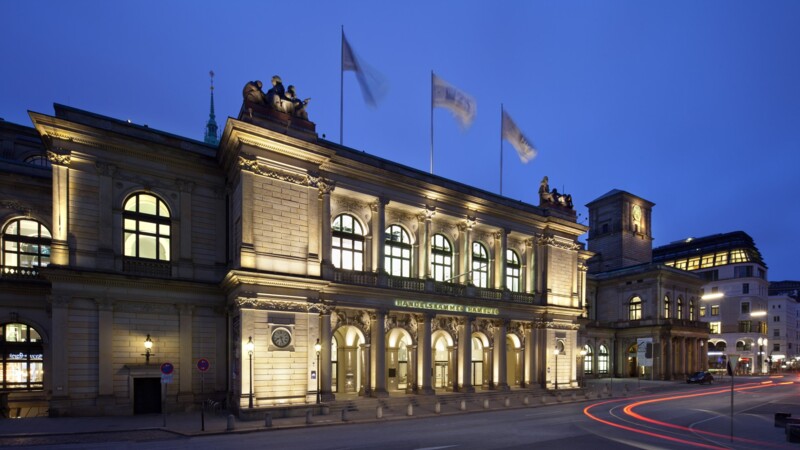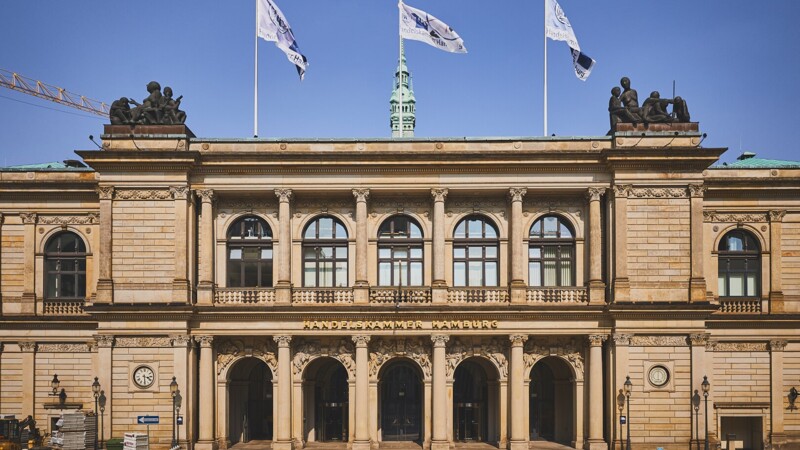Goydke was Professor of Japanese Economy and Society at the HSB Hochschule Bremen for 18 years and is the third president of HSBA. Founded in 2004 as the Business School of Hamburg, he now aims to build on this positive development. "Crises are the new normal. Teaching must be organised accordingly. We want to help our students develop new solutions and strategies for dealing with crises," Goydke pointed out. This should strengthen the resilience of the students and transfer it to companies thereby preparing Hamburg's economy for shocks in future. The strategic focus is thus on internationalisation and more sustainability and digitalisation in teaching, research and administration.
Almost half of companies across Germany were unable to fill their skilled workers' vacancies in the first half of 2022, according to the Institute for Employment Research (IAB). Thus, the shortage of skilled labour is now the top hindrance to growth. During the official inauguration of HSBA's new president, Professor Tim Goydke, earlier in November, Dr Eva Gümbel, State Councillor for Science, Research and Equality, said: "HSBA is becoming increasingly popular, especially among young students, thanks to its dual study model." The university saw a record 325 new students enrol in 2023. Around 1,000 students from more than 300 partner companies are currently enrolled at HSBA, which helps to meet the demand for skilled labour.
Strategies for dealing with crises

AI as a game changer in higher education
"Everyone has been talking about artificial intelligence since ChatGPT. I believe that AI will be a game changer in higher education." Not surprisingly, Goydke now wants to put both skills for dealing with the technology and AI models onto the curriculum. Students who think that learning is now superfluous are problematic. "AI can help solve complex challenges, but it cannot replace human learning as the basis for creative thinking, visionary action and ethical judgement."
Sustainability is a necessity, an obligation and an opportunity. "We must educate our students so that they develop solutions that combine ecological, economic and social aspects," he stressed. In office since early October, Goydke now hopes to raise the visibility of HSBA's international degrees and to elevate the importance of stints abroad during the degree courses. "Our graduates must be people who think and act globally."

Achieving plenty despite upheaval
This sentiment is echoed by Alexander Birken, CEO of the Otto Group, who is responsible for over 41,000 employees worldwide. The Hamburg-based retail group was one of HSBA's first partner companies. Birken has watched the impressive career paths of some graduates. "I experience curiosity, a thirst for knowledge and a desire to try out use cases among our dual students." That is all the more important in these challenging times. "Working in the German economy has never been as exciting. A lot can be shaped in a period of upheaval." Birken cites the promotion of the circular economy and making the market economy more humane as examples. That requires committed young talent, Birken and Goydke agree. "The special spirit in HSBA, which is expressed in the courses and the extracurricular activities, is perhaps the secret to HSBA's success. And I am also keen to develop this further," Goydke stressed. "We are looking forward to implementing these plans," said Astrid Nissen-Schmidt, Chair of HSBA Board of Governors and Vice President of the Chamber of Commerce. "However, the figures must be right. We make sure that the balance sheet is in the black at the end of the day," she noted.
ys/pb

Sources and further information
HSBA is a state-recognized private university accredited by the Science Council. The dual bachelor's degrees in economics are characterized by academic content in college and practical training in more than 300 patents across Hamburger. To this end, HSBA offers professional master's courses, a cooperative promotion program, application-oriented research and further education.
More
Similar articles

Businesses in Hamburg going international

Mood in Hamburg's economy improves, says Chamber of Commerce

